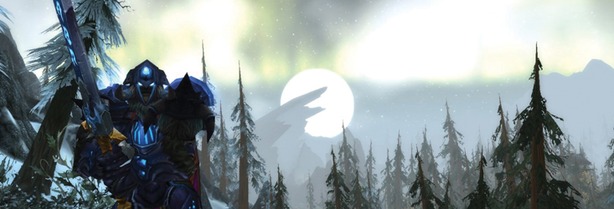Playing The Long Game
Above all else, an MMO needs time and investment on the part of both audience and publisher to succeed. Sadly, in the post-WoW world, these qualities are in short supply. While a handful of games are instantly successful, many see their audiences peak in the first month then fall in the following months, as players either work their way through the content or move on to the next big game.This is something that the game’s publishers need to understand, so that they can support the game through the tail-off. The problem is that some publishers have entered the MMO market with short-term profit in mind.
"I think if you enter into the endeavour of building this kind of game with your eyes wide open about how big an undertaking
it is – it’s a marathon, not a sprint – then you’re more likely to succeed," says Jeff Steefel. "That’s why games such as EVE Online, and Dungeons and Dragons Online, which have persevered even though they might not have had the perfect launch, have survived – the companies releasing them out know that this is the beginning of a long process."
Erling Ellenson believes that the success of World of Warcraft has led to unreaslitic expectations. "Everyone expects someone to make another WoW, but the fact is that WoW has become a social phenomenon that ‘s very difficult to match. From the outside, I think it puzzles a lot of people, such as investors, as to why it’s so difficult to claim the throne from Blizzard. People in the industry, however, understand that no one expects to reach these numbers with a new MMO. It’s something we all aim for, though, and it’s nice to have such a holy grail to strive towards. It makes us sharp and keeps us trying harder."

Hail to the King - World of Warcraft
Frankly, it will be very difficult for any game to match Blizzard’s monolith. MMOs are social in their nature, and this means that the highest numbers of players will inevitably gravitate to the most populated games. It isn’t impossible though – people used to say that EverQuest would never be toppled, and when WoW launched, few saw it as the future king.
The Future
Despite the troubled launches and subsequent failures of many recent MMOs, people in the industry remain confident. NetDevil’s Scott Brown is now working on a new space combat MMO called Jumpgate: Evolution, as well as the upcoming LEGO Universe MMO. He shrugs off any idea that the genre might be dying. "First, look how well both Conan and Warhammer did at launch. Obviously, the players are there if you want to get them. Second, look at games such as Lineage in Korea; almost 20 per cent of the population have played that game at some point. As big as WoW is, there’s probably only 1 per cent of the US population playing that game. We have a long way to go."Jefftrey Steefel feels that we’re seeing the MMO growing up. "There might not be room for another WoW, but this doesn’t mean that there’s no room for games in other styles," he comments. "You need to look at the market and understand that there are many different people out there who connect online."
The MMO is migrating from being a game to a form of entertainment. As Turbine’s Alan Mersky points out, the MMO industry is still young – even the oldest games are just over a decade old. "There’s a huge opportunity to use different business models and different platforms," Mersky says. "For instance, it was said that an FPS would never work on console, and that wasn’t the case. I think the same goes for the MMO, and we’ll see games in different flavours suiting different niches."
These are interesting times for the MMO. Certain games, such as Cryptic’s cross-platform superhero MMO Champions Online, or SOE’s PC and PS3-spanning DC Universe, will be seen as test cases for ‘more accessible’ MMOs. Meanwhile, incoming free-to-play MMOs such as SOE’s Free Realms or the Cartoon Network’s FusionFall will help us to predict whether new business models will be effective.
Above all else, it seems that developers are learning that games have failed, or seem to be failing, due not to spurious reasons, but because of wider or more endemic problems in their conception or production. It only takes one game, such as WoW, to get things right and the genre takes another big step forward. Who knows where and what the next big thing will be?

MSI MPG Velox 100R Chassis Review
October 14 2021 | 15:04










Want to comment? Please log in.